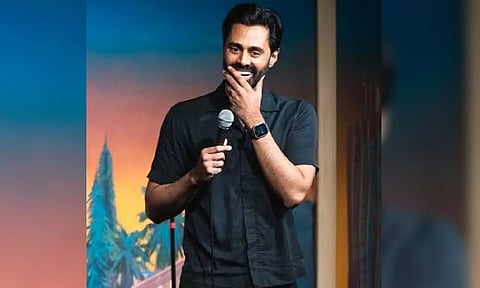

CHENNAI: A recent article by The New Yorker on Hasan Minhaj, an Asian-American comedian and political commentator fabricating and exaggerating details pertaining to his immigrant experience in the US, has stirred up a controversy of sorts in the entertainment world. The Indian-origin stand-up comedian’s defence was that “emotional truth is first, factual truth is secondary”. Thanks to this rationale, social commentators have called into question not just Minhaj’s hard-earned credibility and integrity, but the very idea of what makes up fact and fiction. To place this in context, stand-up comedy often relies on a blend of truth and make-believe, that tends to be universally relatable. African-American and immigrant-origin performers frequently employ accounts of racial discrimination as storytelling tropes. It wins the audience’s empathy and the respectability of being a survivor. Of course, lacing it with humour helps sell a ‘moral’ to a crowd tripping on ‘white’ guilt.
Nobody expects Minhaj to be the torch-bearer of truth and honesty. But, when you share lived experiences of other people, especially those based on racial discrimination, personalise them with enough pathos and loss to garner sympathy and attention, and then position yourself as a thoughtful intellectual and fearless crusader of social justice, ready to take on even the Saudi royalty, that’s a problem.
Whether it was hubris or arrogance believing that nobody would fact-check his work, Minhaj’s actions have repercussions. Chief among them is that he has hurt the community he represents. As it stands, those coming forward with allegations pertaining to racial discrimination in the US are often put through the wringer, and distrust is the order of the day.Being an Asian, and a Muslim who has made in-roads into Hollywood, still considered a liberal WASP and Jewish bastion, Minhaj’s fabrication is excellent fodder to feed that narrative of distrust. The fictitious ‘emotional truth’ that he defends himself with, negates the real indignities endured by Blacks, Hispanics and others, and makes it much harder for them to be believed. It also emboldens the denialists who have been served on a platter.
There is another problem too. When two women fact-checkers in Minhaj’s team challenged some of his material in the writers’ room, they were asked to leave, wait in the hall, and were not included in meetings thereafter. The co-creator of Minhaj’s show Patriot Act defended this as a decision meant to streamline the process, not exclude individual researchers.
Does this spell trouble for Minhaj professionally? Last month, it was reported that he was ‘one of the top three candidates’ being mulled as a replacement for Trevor Noah to host The Daily Show. Minhaj had previously worked with the firebrand Jon Stewart as a correspondent for the show. The furore around Minhaj’s revelations might echo in the high corridors of network TV, where his penchant for hyperbole and exaggeration could be viewed with suspicion.
Minhaj used other people’s lived experiences to deliver social messages through a carefully-built narrative based on truth, but peppered it with an inventive imagination. However, it opens up an entire Pandora’s Box on creative licences, artistic liberties and how far one could take them. Considering his fondness for punchlines, one hopes for Minhaj’s sake, that he doesn’t end up being the butt of the joke.